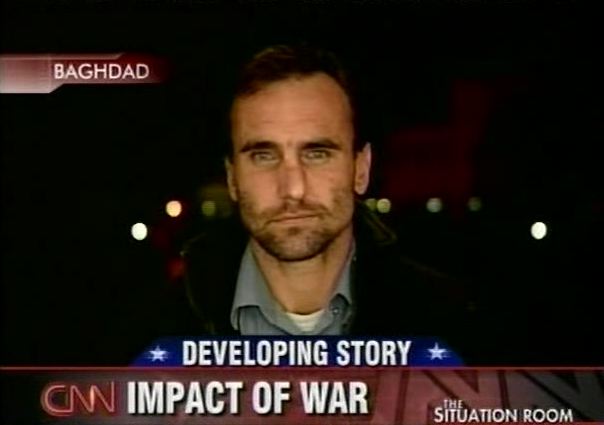TSR: How many civilian deaths?

Click photo to play
Length: 2:59
WOLF BLITZER: Meanwhile, there are stunning new claims today about the toll being taken by the war in Iraq.
And joining us now from Baghdad our correspondent Michael Ware. Michael, The Associated Press now quoting the Iraqi health minister as saying that during the course of this war in Iraq, three and a half years, 150,000 Iraqi civilians have died, have been killed. An enormous number by all accounts.
MICHAEL WARE, CNN CORRESPONDENT: Absolutely Wolf. And, I mean, this has been one of the impossible to tell stories of this war. Just how many Iraqi civilians have died in the course of collateral damage from military operations, in sectarian violence, in the course of the insurgency and suicide bombings? It's a very, very hard thing to gauge.
And numbers conflict everywhere. We have seen more conservative estimates that put it in the tens of thousands, 40-50,000. Many people settle on a figure around 100,000. Be it the Iraqi health minister or not -- and we must be aware that the Health Ministry is now owned and run by the political faction belonging to anti-American rebel cleric Muqtada al-Sadr -- its figures itself are difficult to work from, and have been questioned in the past.
Nonetheless, it's very, very clear, certainly to Iraqis here on the ground, almost everyone has been touched by this war in one way or another. Each family has felt some kind of loss -- Wolf.
BLITZER: And this comes on the heels, Michael, of a United Nations report that estimates that nearly a million Iraqis, more than 900,000, have been displaced since the start of the war, forced to flee their homes, now living elsewhere in various parts of Iraq or going to neighboring Jordan or Syria or Iran or Saudi Arabia or other countries in the region. Nearly a million Iraqis forced to flee their homes. Do you get that sense as well just being there?
WARE: You very much do. I mean there's a sense of -- there's people on the move. But I mean, it all comes from this atmosphere of fear, tension and apprehension. I mean, this is what is driving people from their homes. We also see this is what's driving the intelligentsia out of the country. Universities -- students no longer go to universities for fear of the violence that may happen.
University professors no longer show up. So many of them have been assassinated. So we're seeing -- it's things like this, where life just can't continue that's driving people out of the country. There's internally displaced in the hundreds of thousands and there are those who have actually left. And we're hearing from U.N. agencies and others that they're simply not geared up to be able to support these enormous numbers, Wolf.
BLITZER: Michael Ware reporting for us from Baghdad. Michael, thank you.
WARE: Thank you, Wolf.
